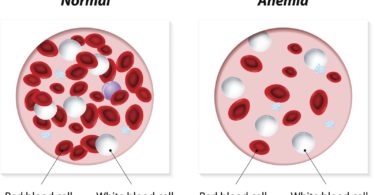DEFINITION: DM is the full medical term for all of the different form of diabetes.DM was known even in ancient times in fact the word diabetes was used about 3000 yrs ago by the ancient Egyptian. Although people back then didn’t know what caused diabetes they only knew that it made blood and urine sweet. It was added by Thomas willis in 1676 after rediscovering the sweetness of urine and blood of patients. The world health organisation has projected that the prevalence of DM is increasing in epidemic proportions especially in developing countries. India has the highest number of people with diabetes in the world.
Different kinds of Diabetes:
1. Type 1 DM
2. Type 2 DM
3. Gestational DM
DIABETES TYPE 1: In type 1 the pancreas stop producing insulin due to auto immune response or possibly viral attack on pancreas. In absence of insulin, body cells draft get the required glucose for producing ATP units which results into primary symptom in the form of nausea and vomiting. In the later stage which leads to ketoacidosis, body starts breaking down the muscle tissue and fat for producing energy hence causing fast weight loss.
DIABETES TYPE 2: It is also known as non insulin dependent DM.
It usually occurs after 40yrs.
CAUSES: type 2 develops due to the absence bor reduced no.of insulin receptors in the cells of the body. Mostly inherited disease.
SYMPTOMS: here Beta cells and blood insulin level is normal.
1. Increased fatigue:- due to insufficiency of the cell to metabolised to gain energy. When fat is broken down in the body, it uses more energy as compared to glucose, hence body goes in negative caloric which results in fatigue.
2. Polydipsia:- as the concentration of glucose increases in the blood, brain receives signal for diluting it and in its counteraction we feel thirsty.
3. Polyuria:- increase in urine production is due to excess glucose present in the body.
4. Polyphagia:- The hormone insulin is also responsible for stimulating hunger. In order to cope up with high sugar levels in blood, body produces insulin which leads to increase hunger.
5. Poor wound healing:- High blood sugar resists the flourishing of wbc which are responsible for body’s immune system. When these cells don’t function accordingly, wound healing is not at good pace.
GESTATIONAL DIABETES: Gestational diabetes is a form of diabetes which affects pregnant women. It is believed that the hormones produced during pregnancy reduce women’s receptivity to insulin, leading to high blood sugar level. Gestational diabetes affects about 4%of all pregnant women. It is estimated that about 135,000cases of Gestational diabetes arises in the United States each year.
Hormones involved in development of placenta, the action of the mother’s insulin in her body. This problem is called insulin resistance. During pregnancy a mother may need up to three times more insulin for glucose to leave the blood and transform to energy. When body is not able to use insulin due to insulin resistance in develop into gestational diabetes. Glucose builds up in the blood to high level it is called hyperglycemia.
CAUSES OF DIABETES:
Hereditary: it is strongly believed that due to some passes from one generation to another, a person can inherit diabetes.It depends upon closeness of blood relationship as mother is diabetic, the risk is 2to 3%, if father is diabetic, risk is Higher.
Age: Increased age is a factor which gives more possibility than in younger age. This disease may occur in any age, but 80% of the cases occur after 50yrs, incidence increase with the age factor.
Poor diet: Improper nutrition, low protein and fibre intake, high intake of refined products are the expected reasons for developing diabetes.
Obesity and fat distribution: Being overweight means increased insulin resistance, that is body fat is more than 30%, BMI25+, Waist grith 35inches in women or 40 inches in males.
Sedentary lifestyle: people with sedentary lifestyle are prone to diabetes, when compared to those who exercise thrice a week, are at low risk of falling for the diabetes.
Hypertension: It had been reported in many studies that there is relation between high systolic pressure and diabetes.
COMPLICATIONS:
A. ACUTE COMPLICATIONS:
1. Hypoglycemia.
2. Diabetic ketoacidosis.
3. Non ketotic hyperosmolar diabetic syndrome.
4. Lactic acidosis.
2. CHRONIC COMPLICATIONS:
1. MICROVASCULAR:
1. Nephropathy.
2. Neuropathy.
3. Retinopathy.
2. MACROVASCULAR:
1. Coronary artery disease.
2. Cerebrovascular disease.
3. Peripheral vascular disease.
HOMEOPATHIC PROTOCOL:
1. Abroma Augusta: excessive weakness, increase appetite & frequent urination.
2. Cephalandra indica: excessive burning, dryness of mouth and increase thirst.
3. Phaseolus: Diabetes mellitus with heart complaints.
4. Syzium jambolanum: bringing down the sugar level, excessive thirst and urination.
5. Gymnema sylvestre: Tonic for diabetic patients.





